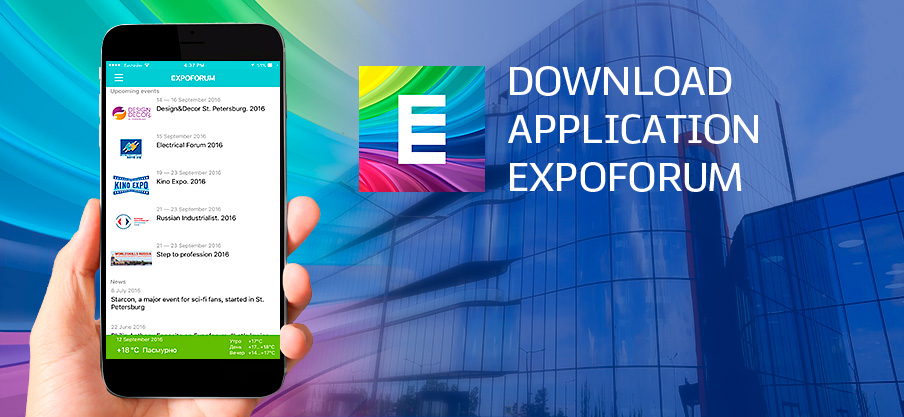Business Representatives Discussed Ways to Digitalize Housing and Communal Services
In Russian there is a special concern about untimely payment of Housing and Communal Services. Over the last year, the number of non-payers has grown, and very often it happens not due to the absence of opportunities but owing to forgetfulness.
The efficient ways to reduce debts for utility services were discussed by participants of the session «Smart Housing and Communal Services: Cases of Implementing Digital Solutions for Automated Operation of Housing and Communal Services» within the International Exhibition «Housing and Communal Services of Russia – 2024».
According to the data provided by Anton Lomakin, the head of the Utility Payments product of Tinkoff Bank JSC, from July 2023 to July 2022 the scope of debt for this service increased by 8.7% having amounted to 833.5 billion rubles. An average collectability of payments around the country amounted to 94–96%. As of the beginning of the Q4 2023, 7.9 people were listed as having debts in Russia.
The indebtedness was mainly caused by customer forgetfulness, Anton Lomakin continues. They account for 47% of respondents. Next there are items «unstable earnings» (25%) and «it is inconvenient to pay for utility services every month» (13%).
To solve the debt issue in respect of the utility services the company has referred to the foreign experience where collectability of payments amounts to 98–99%. It was decided to focus on the notices and bills in the mobile application, which produced the first results. With a direct agreement between the management company or resource provider and Tinkoff Bank, frequency of customer payments increased from 24% to 45%, Anton Lomakin underlined.
Andrey Zheleznov, the General Director of R.O.S.DOLG Agency, told about how automation of business processes affects the efficiency of pre-judicial recovery of utility debts. He reminded that the company ranks first in the country in this area. It operates in 50 Russian regions and collects 3.5 billion rubles annually. The expert added that the pre-trial work costs twice as cheap as litigation.
«Moreover, growth of collections falls on the first months of work, which is impossible to ensure at the court stage, when one can wait for the receipt of the first money about five months later. An average debt amount processed is 20 thousand rubles. These are not bank loans for millions of rubles, such money can be found. We are making a massive effect on a debtor – create mental discomfort and encourage them to pay, but strictly within the scope of the law», Andrey Zheleznov said.
According to the expert, at the start, only a debtor’s address and a debt amount are available for the company. That is why absence of the customer contacts was one of the major problems. We had the phone numbers of 16% of consumers only, which made interaction very complicated: other debtors can be contacted only in person or by sending a letter. As a result, the company independently looks for the contacts which takes about a week. Today, the base of the agency’s verified contacts has reached 5 million addresses, which accounts for 10% households of Russia.
According to Andrey Zheleznov, the agency has three strategies of dealing with debts that differ in terms of intensity. Calls and visits to addresses require high involvement of the personnel while the staff is less involved in case of e-mail messaging, sending messages in messengers and by SMS, and automatic informers. The last actions are performed automatically. Following involvement of the agency, payment collections increased 11-fold for 21 months.
Dmitry Poltorak, the ideologist and architect of the automation projects of Lartech, has reminded that Autonomous Non-Profit Organization «Smart Multi-Family House» has been operating in Russia since 2022, which prepares recommendations to form the standards of the same-name project. As part of this project, the efforts were joined by the key developers, telecommunication operators, software developers and equipment manufacturers.
The aim of the organization is to form the regulation that will facilitate making and mass implementing of solutions for smart multi-family houses.
«This is the issue of both economy development and security, as housing and communal services are the key area where we’d rather not depend on foreign solutions», Dmitry Poltorak underlined.
A concept of the housing digitalization industry development was elaborated within Autonomous Non-Profit Organization «Smart Multi-Family House», Dmitry Poltorak continued.
«It became clear that it makes no sense to establish the unified standard of a smart multi-family house, but it is necessary to bring the existing regulatory legal acts into conformity with the present-day requirements. For instance, construction standards and regulations of the 1980th are still functioning in the field of lighting. Or take a door phone plate the requirements to which have not changed since the old Soviet times», Dmitry Poltorak underlined. He informed that as a result, there were some difficulties with installation of modern door phones in Moscow when implementing the renovation program, and specialists had to seek other ways to replace the equipment.
Over 70 regulatory and technical documents are scheduled for the development and updating for the near future, said Dmitry Poltorak.
«Moreover, we are talking about both on creation and updating of state standards and on modernization of the code of practice with an opportunity of annual updating. Then it will be the living history and not just a non-functioning thing handed down or from the side», he stated.

 Calendar
Calendar
 Online application
Online application
 Map
Map
 How to get
How to get


